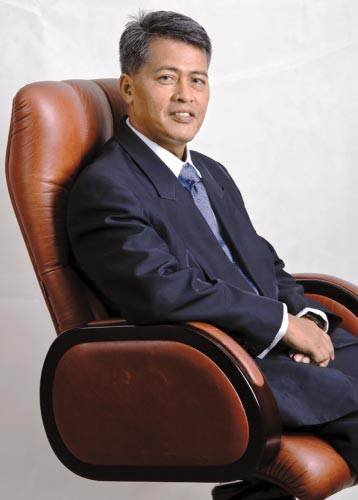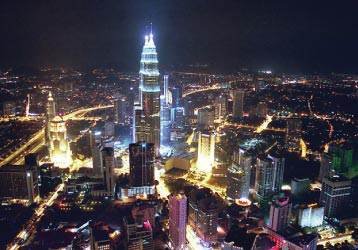
“We are the keeper of the light for everybody in peninsular Malaysia, whether it’s commercial or domestic consumers, be they in rural or urban areas,” emphasized Datuk Seri Ir. Azman Mohd, president and CEO of Tenaga Nasional Berhad (TNB), the largest electricity company in Malaysia and a leading utility entity in Asia.
Since its inception, TNB has enabled Malaysia to transform itself into the economic powerhouse that it is today.
Tracing its origins to the establishment of the government-run Central Electricity Board in 1949, TNB was later privatized and publicly listed in 1990. Since then, the company has expanded operations and accumulated assets currently estimated at $29 billion dollars.
As much as it has provided a stable return to its investors, TNB has stayed focused on supplying Malaysians with a reliable source of energy. In fact, the company takes pride in lighting up 99.9 percent of peninsular Malaysia.
With 33,500 employees and around 8.3 million customers, TNB has received a string of prestigious accolades for its service and performances, both domestically and abroad.
Operating mainly in power generation, transmission, and distribution, TNB is present in Saudi Arabia, Kuwait, Pakistan, Indonesia, and East Asia.

In addition, TNB is also actively expanding into other emerging markets, with a focus on the Asia Pacific, the Middle East, and North Africa.
“We are right now in the geographical expansion phase. In fact, a new division was established specifically to focus on investments outside of Malaysia,” said Azman Mohd.
The new division — New Business & Major Projects — serves to coordinate and manage all new business development in order to achieve its goal of deriving about $1.6 billion from non—regulated business in three years’ time.
The target is clear: at least 20 percent from TNB’s overall revenues in 2015 will be generated from its overseas ventures.

Propelling the growth of the conglomerate are its subsidiaries: TNB Repair and Maintenance Sdn. Bhd. (REMACO), TNB Engineering Corporation Sdn. Bhd. (TNEC), Tenaga Switchgear Sdn. Bhd. (TSG), Malaysia Transformer Manufacturing Sdn. Bhd. (MTM), TNB Engineering Services Sdn. Bhd. (TNBES), and Tenaga Cable Industries Sdn. Bhd. (TCI), which have managed to penetrate their key markets since the 1990s.
As a result of the concerted efforts of all the subsidiaries, in 2012, TNB hit its fiscal year target of drawing in about $735 million from its non—regulated income stream, with group–wide revenue reaching $11.43 billion.
Aside from the six thermal stations and three hydroelectric plants in the country, TNB manages and operates Malaysia’s national grid, and through that system, also maintains interconnection to neighboring Thailand and Singapore.
The six thermal power stations comprise coal, conventional gas— and oil—fired plants, and open and combined cycle gas turbine plants. The generation arm of TNB has a total installed capacity of 9,041 MW, with 80.6 percent coming from the thermal plants. Though most of its plants are presently gas–fired, TNB has intensified efforts to reduce its greenhouse gas emissions by adopting the latest technology and implementing best industry practices.
The Manjung 4 coal-fired power plant, for example, is expected to be the first ultra—supercritical power plant in Southeast Asia when it is completed in 2015.
As part of a twenty—year strategy to become one of the world’s largest power companies by 2025, TNB has also committed itself to implementing green initiatives and developing renewable sources of energy, which complements Malaysia’s target of lowering overall carbon emission by 40 percent by 2020, in line with most of the mature economies in Europe.

“In our electricity bill, 1 percent of it actually contributes to a fund that subsidizes the premiums for the green developers. We also have a subsidiary that deals exclusively in renewable energy,” explained Azman Mohd.
As the leading utility company in Malaysia, and with more than sixty years of experience, TNB has attracted much interest from potential foreign investors.
Determined to grow regionally, the company has expressed openness to form partnerships with international groups.
“We are looking for Engineering, Procurement and Construction (EPC) partners, and so we are inviting, among others, U.S. players who can provide the best resources and technology, so that we can grow together,” said Azman Mohd, who added that TNB’s business relationship with the United States is best represented by its long-term ties with GE.
“Technology-wise, we are always looking for better technologies and more efficient ways of operating. As a vertically integrated utility, there is a whole stretch of opportunity for collaboration. This is apparent in our ongoing and strong collaboration with Siemens AG for the latest gas turbine technology,” he added.
As the government tries to attract more foreign investment, TNB is consolidating Malaysia’s competitive advantage by supplying affordable and reliable supply of electricity. And with the implementation of several government measures, the country’s power industry has become even more competitive and environmentally sustainable than those of its Southeast Asian neighbors.
“There is a symbiotic relationship between TNB and the country. So, in tandem with Malaysia’s GDP growth, we’ve actually increased revenue,” Azman Mohd said.
“In terms of profitability, last year was one of our strongest years, largely due to the decrease in fuel costs. In terms of performance, we continue to enhance and focus our maintenance program on preventive maintenance instead of corrective maintenance,” he added.
With the steady recovery of the global economy that fuels the power demand growth, the outlook for the utility giant is nothing but rosy.
Note: This Special Report on Malaysia originally appeared in Foreign Affairs in July 2013 (Credit: Philippe Le Saux)
